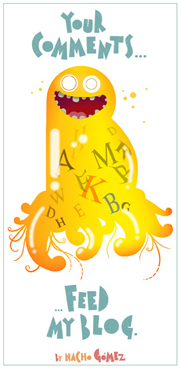 Halloween
Halloween is nearly here and what better way to celebrate it than doing a
Webquest with your students. For those who don´t know what a webquest is, here is a short definition :
A webquest is an assignment which asks students to use the World Wide Web to learn about and/or synthesize their knowledge on a specific topic. A “true” webquest, as originally designed by Bernie Dodge and Tom March, requires synthesis of the new knowledge by accomplishing a “task,” often to solve a hypothetical problem or address a real-world issue. Simpler web activities designed for students to investigate and collect new knowledge from web-based sources can also be a more engaging and effective replacement for read-the-chapter-and-complete-the-review-questions. Essentially, webquests are
mini projects in which a large percentage of the input and material is supplied by the Internet.
For more information and reasons for doing webquests, and how to structure and produce webquests, read this article below:
Webquest Article
Fancy trying something new with your Bachillerato or teens? Here is a nice webquest a participant on a course I was doing recently sent in .
Go to this link:
Horror Holidays
 Help your students hear the sounds of English by clicking on the symbols of the pronunciation chart in the link BELOW - you can now install it on your own PC or Mac computer and use off line or in the classroom. To download the chart, simply click on the link below and then save the file to your desktop. You can then just click on the file to open it at any time. (PS: There is a version for a Mac computer on the Teaching English website below, if you use a Mac).
Help your students hear the sounds of English by clicking on the symbols of the pronunciation chart in the link BELOW - you can now install it on your own PC or Mac computer and use off line or in the classroom. To download the chart, simply click on the link below and then save the file to your desktop. You can then just click on the file to open it at any time. (PS: There is a version for a Mac computer on the Teaching English website below, if you use a Mac).










